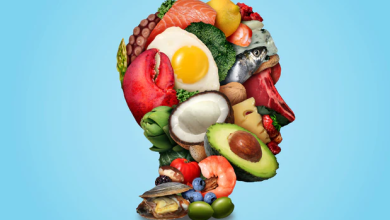Good protein

Good protein : Are you ready to discover the power of good protein? It’s the fuel your body needs to thrive, whether you’re an athlete, a fitness enthusiast, or simply someone looking to lead a healthy lifestyle. Let’s dive into the details and explore why good protein is so essential.
Picture protein as the building blocks of life. It plays a crucial role in repairing and building tissues, supporting muscle growth, and boosting your metabolism. When we talk about “good” protein, we mean high-quality sources that provide all the essential amino acids your body requires. These include lean meats like chicken, turkey, and fish, as well as plant-based options such as beans, lentils, quinoa, and tofu.
One of the great benefits of good protein is its ability to keep you feeling full for longer periods. Have you ever eaten a meal only to find yourself hungry again shortly afterward? Well, that’s where protein comes to the rescue! It takes longer to digest compared to carbohydrates, helping you stay satisfied and avoid unnecessary snacking. This can be especially beneficial if you’re trying to manage your weight.
But the benefits don’t stop there. Good protein also aids in muscle recovery and growth. When you engage in physical activity, your muscles undergo stress and tiny tears occur. Protein steps in to repair these tears, making your muscles stronger and more resilient. If you’re hitting the gym or engaging in regular exercise, incorporating good protein into your diet is essential for achieving those gains and improving your performance.
Protein is not just for athletes; it’s for everyone. It supports a healthy immune system by producing antibodies to fight off infections and diseases. Additionally, it plays a vital role in maintaining healthy skin, hair, and nails. So, if you want that natural glow and strong, luscious locks, make sure you’re getting your daily dose of good protein.
good protein is a game-changer when it comes to your overall well-being. From repairing and building tissues to keeping you feeling full, supporting muscle growth, and maintaining a healthy immune system, its benefits are far-reaching. So, whether you choose animal-based or plant-based sources, make sure to include good protein in your diet. Your body will thank you for it!

Unlocking the Power of ‘Good Protein’: How It Boosts Muscle Growth and Aids in Weight Loss
Are you ready to unleash the power of “good protein” and transform your body? If you’re looking to build muscle and shed those extra pounds, then you’ve come to the right place. In this article, we’ll explore how incorporating good protein into your diet can supercharge your muscle growth and help you on your weight loss journey.
So, what exactly is good protein? It refers to high-quality protein sources that provide all the essential amino acids your body needs to function optimally. Examples include lean meats like chicken, turkey, and fish, as well as plant-based options such as beans, lentils, and tofu.
When it comes to muscle growth, good protein plays a vital role. During exercise, our muscles undergo microscopic damage. Protein steps in to repair and rebuild these tissues, making them stronger and larger in the process. By consuming adequate amounts of good protein, you supply your body with the building blocks it needs to promote muscle recovery and growth.
But that’s not all – good protein also aids in weight loss. How does it do that? Well, protein has a higher thermic effect compared to fats and carbohydrates. This means that your body burns more calories during digestion when you consume protein-rich foods. Additionally, protein helps to increase satiety, keeping you feeling fuller for longer and reducing the likelihood of overeating.
Incorporating good protein into your meals doesn’t have to be complicated. You can start by adding lean meats or plant-based protein sources to your main dishes. Snacking on Greek yogurt, cottage cheese, or a handful of nuts is also an excellent way to boost your daily protein intake.
Remember, consistency is key. Aim to spread your protein intake throughout the day rather than consuming it all in one meal. This ensures a steady supply of amino acids for muscle repair and growth.
So, whether you’re hitting the gym or striving to shed unwanted pounds, unlocking the power of good protein is crucial. It fuels muscle growth, aids in weight loss, and keeps you feeling satisfied. Start incorporating high-quality protein sources into your diet today, and watch as your body transforms into a lean, mean machine.
From Farm to Fork: The Rise of Sustainable Sources for ‘Good Protein’
Introduction:
Have you ever wondered where your food comes from? In an era where sustainability is gaining momentum, more people are becoming conscious of the impact of their food choices on the environment. “Good protein” refers to high-quality, nutrient-rich protein sources that can be obtained sustainably. This article will explore the fascinating journey of sustainable protein sources, from farm to fork.
The Farming Revolution:
Traditional farming practices often put a strain on the environment, but a revolution is underway. Farmers are embracing sustainable techniques that promote biodiversity, reduce greenhouse gas emissions, and minimize waste. For instance, regenerative agriculture focuses on soil health and employs practices like crop rotation and cover cropping to restore the ecosystem.
Alternative Protein Sources:
As demand for protein surges, innovative solutions are emerging. One such solution is plant-based protein. Made from legumes, grains, or vegetables, these products offer a viable alternative to animal-derived protein. Plant-based meats, for example, mimic the taste and texture of traditional meat while leaving a smaller environmental footprint.
Another rising star in sustainable protein is cultured meat. Grown from animal cells in a lab, this technology eliminates the need for traditional livestock farming. Cultured meat production consumes fewer resources, emits fewer greenhouse gases, and avoids animal cruelty, making it a promising avenue for the future.
Seafood Sustainability:
Sustainable protein extends beyond land-based sources. Fish and seafood play a crucial role in many diets, but overfishing and destructive fishing practices threaten our oceans’ delicate balance. Fortunately, sustainable aquaculture practices are gaining traction. Responsible fish farms prioritize environmental stewardship, ensuring the well-being of aquatic ecosystems while providing us with a healthy source of protein.
Conclusion:
In the quest for sustainable protein, the “farm to fork” journey is transforming. From regenerative farming techniques to plant-based and cultured alternatives, the options for “good protein” are expanding. By making conscious choices about our food, we can contribute to a more sustainable future. So, next time you sit down for a meal, consider the origin of your protein and the impact it has on both your health and the environment.
Supercharging Your Diet: Discovering the Best Plant-Based ‘Good Protein’ Alternatives
Are you tired of the same old protein sources and looking to supercharge your diet with plant-based alternatives? Look no further! In this article, we will explore the best plant-based “good protein” alternatives that will not only satisfy your taste buds but also provide you with a nutritional boost.
One of the top contenders in the world of plant-based proteins is quinoa. This tiny grain-like seed is packed with all nine essential amino acids, making it a complete protein source. Whether you use it as a base for salads or as a substitute for rice, quinoa is a versatile option that adds a nutty flavor to any dish.
If you’re a fan of Mexican cuisine, you’ll be delighted to know that black beans are not only delicious but also rich in protein. These legumes are an excellent source of fiber, folate, and antioxidants. From hearty black bean burgers to flavorful dips and stews, there are endless possibilities to incorporate these little powerhouses into your meals.
For those seeking a meaty texture, tempeh is a must-try. Made from fermented soybeans, tempeh is firm and chewy, making it a perfect substitute for meat in stir-fries, sandwiches, and even burgers. Not only is tempeh high in protein, but it’s also a great source of probiotics, which promote gut health.
Another fantastic plant-based protein alternative is lentils. These legumes come in various colors and offer an array of health benefits. Lentils are not only low in fat but also high in fiber, iron, and folate. With their earthy flavor and hearty texture, they can be used in soups, stews, salads, and even veggie patties.
Lastly, let’s not forget about the mighty chia seeds. These tiny black seeds are packed with protein, omega-3 fatty acids, and fiber. When combined with liquid, chia seeds form a gel-like consistency, making them a great addition to smoothies, puddings, and homemade energy bars.
Breaking Barriers: The Surprising Health Benefits of ‘Good Protein’ for Vegetarians and Vegans
Are you a vegetarian or vegan who is constantly bombarded with questions like, “Where do you get your protein from?” Well, here’s some good news that will leave both skeptics and enthusiasts amazed. Contrary to popular belief, there are numerous health benefits associated with consuming ‘good protein’ for those following a plant-based diet.
One might wonder what exactly constitutes ‘good protein.’ It refers to high-quality protein sources that provide all the essential amino acids required by our bodies. While animal products have traditionally been considered the gold standard for protein, recent studies have shown that plant-based proteins can be just as beneficial, if not more so.
One major advantage of incorporating ‘good protein’ into a vegetarian or vegan diet is its positive impact on heart health. Plant-based protein sources, such as legumes, nuts, seeds, and whole grains, are typically low in saturated fat and cholesterol. These proteins promote cardiovascular well-being by reducing the risk of heart disease, lowering blood pressure, and improving overall lipid profiles.
But that’s not all – the benefits extend beyond heart health. ‘Good protein’ can also aid in weight management and muscle development. Many vegetarian and vegan protein sources are rich in fiber, which promotes satiety and helps control appetite. This can be particularly beneficial for individuals trying to lose or maintain weight. Additionally, plant-based proteins are important for muscle repair and growth, making them an excellent choice for athletes and fitness enthusiasts.
Furthermore, adopting a diet rich in ‘good protein’ may have a positive impact on bone health. Contrary to the common misconception that plant-based diets lack calcium, many plant-based proteins are abundant in this essential mineral. Incorporating foods like tofu, tempeh, leafy greens, and fortified plant milks can help ensure an adequate calcium intake, crucial for maintaining strong and healthy bones.
the health benefits of ‘good protein’ for vegetarians and vegans are truly remarkable. From protecting heart health to aiding weight management and supporting bone strength, plant-based proteins offer a wide range of advantages. So next time someone questions your protein intake, you can confidently share the surprising health benefits associated with ‘good protein’ for those following a vegetarian or vegan lifestyle.




10 Comments